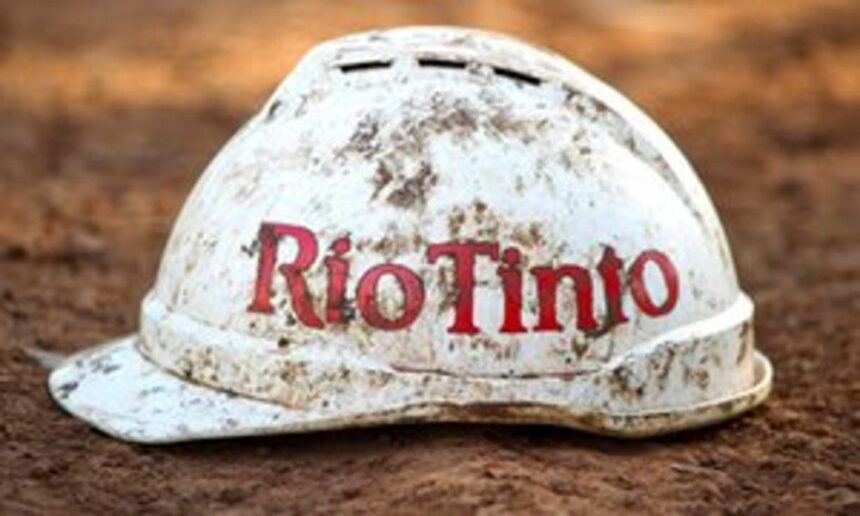Oyu Tolgoi, Mongolia’s biggest copper-gold mine, employs 7,000 Mongolians and 400 expatriates. However, 300 of them were laid off last week. If you count the other 1,700 people who were let go ten months ago, approximately 2,000 people (10,000 people if their families are taken into account) lost their source of income within one year. In a letter that was circulated internally, Craig Kinnell, OyuTolgoi’s Chief Executive Officer, said that workforce reduction was a part of the lifecycle of a mining business and there was an urgent need to reduce costs. N.Altankhuyag, the Prime Minister of Mongolia, also explained to the media that Rio Tinto was reducing its operational costs by one billion USD globally.
Mongolia is going through an economic recession as the tugrug rate has declined by 30 percent and commodity prices have increased by 50 percent. The government quickly developed a 100-day action plan to revive the economy, support the mining industry, and restart OyuTolgoi’s underground development as soon as possible. However, the fact that OyuTolgoi’s workforce reduction happened only ten days after the announcement of this action plan shows that Rio Tinto is not our friend, but a partner. A friend is someone who puts his own interests aside to help you, while a partner is someone who prioritizes his interests and only works with you to achieve business objectives.
When the tugrug declines suddenly, there is an increase in the prices of goods and services purchased in Mongolia. Therefore, it is a normal thing for businesses to reduce their workforce so that they can decrease their payroll costs, which comprise half of most operating costs. Rio Tinto operates to generate profits and is obliged to give value to its shareholders. Also, as a company listed on international stock exchanges, their executive management works to achieve those goals and makes final decisions on how many people to employ and whether to carry out a workforce reduction. If the executive management fails to make good decisions about the workforce and produce profits, they get replaced. If required, Rio Tinto will make reductions to its workforce again.
A law was passed to allow the Government of Mongolia to own 34 percent of strategic deposits, and three people from the government were appointed to OyuTolgoi’s board of directors. The other shareholder who owns 66 percent of the strategic deposit appoints their executive management to be in charge of the implementation of the project. Despite owning one third of the business, our government has been treating Rio Tinto like a friend rather than seeing them a business partner. The government has been asking Rio Tinto to borrow money and used it for political purposes. When doing so, there were times that the government coerced Rio Tinto to do something and begged them afterwards to make up for it.
However, there is no room for friendship in business. There is only partnership. The current economic recession and the realization of the difference between a friend and a partner are teaching Mongolians several important lessons.
1. A MARKET ECONOMY HAS CYCLES
Unlike a centrally planned economy, a market economy has its own economic cycles. The economy can grow consistently, diminish suddenly, decline gradually, or improve unexpectedly for the short and long term. We call these intervals “economic cycles”. Dependent on internal and external factors of economic development, economic growth can be sustained when there is a balanced ratio between value creation, supply, and demand. Such a ratio is set by government policy and the availability of raw material, labor, and financial resources. After some time, the balanced ratio gets disrupted and economic growth slows down. Unless accurate measures are taken, the decline lasts for quite some time until there is a balanced ratio set again. The pace and extent of economic cycles, such as growth and decline, are found to be different in every country.For example, the annual growth of Mongolia’s economy was -9.3 percent in 1992, 6.5 on average in 1995-2010, 17.6 percent in 2011, 12.4 percent in 2012, and 11.7 percent in 2013.
2.DUTCH DISEASE
Our economy has become highly dependent on mining. Mining is an industry where there is a strong likelihood that you will not find anything after spending an enormous amount of money for exploration. If you do find a mineral deposit, a huge, long-term investment is required to purchase necessary equipment, start mining, and commence sales after processing. It is an industry that creates the least number of jobs per million dollars of investment. The end users are heavy industries, thus, the mining industry is directly dependent on the international prices of mineral products. Therefore, nations attempt to develop knowledge, or labor-based industries, rather than becoming dependent on a single industry like mining. Mongolians are talking about it a lot instead of actually doing something. We are currently on the brink of catching Dutch Disease.
3.THERE IS NO SUCH THING AS A SEMI-DEMOCRACY
Effective cooperation between the government and the private sector is essential to managing economic cycles and diversifying the economy. Holding free and fair elections can be viewed as a job half done to establish a fully democratic society. The job can only be completed when society becomes able to provide oversight on governance and fix it when necessary. A market economy can only be fully applied when there is a true democracy, not a semi-democracy.
Today, Mongolians are not incapable of accomplishing the other half. The government is also reluctant about the idea of having public oversight and has spent too many years avoiding any meaningful actions about it. This is why our economy is facing a recession (To read more, please visit the article “Fake Democracy” on www.jargaldefacto.com/fake-democracy/).
4. NEED FOR MARKET EXPANSION
A country with a small market, such as Mongolia, can enter a larger market by producing some core parts of a product if it is not capable of making end products that are internationally competitive. The only way to achieve great progress is to have high productivity. However, we need to fully understand that higher productivity is created by market competition, not the government.
5. ROLE OF GOVERNMENT
As the government provides more soft loans, sets more prices, and gets more involved in business, the economic recession is lasting longer. The reality demonstrates that more government involvement in the mining industry leads to a longer decline. Would it not be better if the government set operational standards regarding safety and environment, ensured their implementation, and received royalties instead of owning shares in a mining project and using taxpayer money to make investments?
2014.06.04












